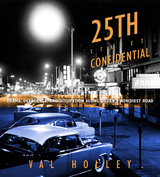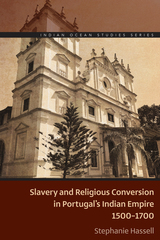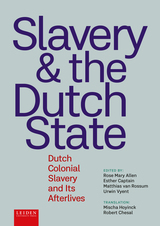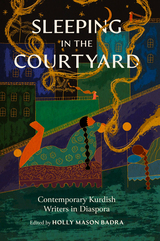2 books about Holley, Val

25th Street Confidential
Drama, Decadence, and Dissipation along Ogden's Rowdiest Road
Val Holley
University of Utah Press, 2013
Generations of Ogdenites have grown up absorbing 25th Street’s legends of corruption, menace, and depravity. The rest of Utah has tended to judge Ogden—known in its first century as a “gambling hell” and tenderloin, and in recent years as a degraded skid row—by the street’s gaudy reputation. Present-day Ogden embraces the afterglow of 25th Street’s decadence and successfully promotes it to tourists. In the same preservationist spirit as Denver’s Larimer Square, today’s 25th Street is home to art galleries, fine dining, live theater, street festivals, mixed-use condominiums, and the Utah State Railroad Museum.
25th Street Confidential traces Ogden’s transformation from quiet hamlet to chaotic transcontinental railroad junction as waves of non-Mormon fortune seekers swelled the city’s population. The street’s outsized role in Ogden annals illuminates larger themes in Utah and U.S. history. Most significantly, 25th Street was a crucible of Mormon-Gentile conflict, especially after the non-Mormon Liberal Party deprived its rival, the People’s Party, of long-standing control of Ogden’s municipal government in 1889. In the early twentieth-century the street was targeted in statewide Progressive Era reform efforts, and during Prohibition it would come to epitomize the futility of liquor abatement programs.
This first full-length treatment of Ogden’s rowdiest road spotlights larger-than-life figures whose careers were entwined with the street: Mayor Harman Ward Peery, who unabashedly filled the city treasury with fees and fines from vicious establishments; Belle London, the most successful madam in Utah history; and Rosetta Ducinnie Davie, the heiress to London’s legacy who became a celebrity on the street, in the courts, and in the press. Material from previously unexploited archives and more than one hundred historic photos enrich this narrative of a turbulent but unforgettable street.
Winner of the Utah Book Award in Nonfiction.
Chosen by Foreword as a finalist in the regional category for their IndieFab Book of the Year Award.
25th Street Confidential traces Ogden’s transformation from quiet hamlet to chaotic transcontinental railroad junction as waves of non-Mormon fortune seekers swelled the city’s population. The street’s outsized role in Ogden annals illuminates larger themes in Utah and U.S. history. Most significantly, 25th Street was a crucible of Mormon-Gentile conflict, especially after the non-Mormon Liberal Party deprived its rival, the People’s Party, of long-standing control of Ogden’s municipal government in 1889. In the early twentieth-century the street was targeted in statewide Progressive Era reform efforts, and during Prohibition it would come to epitomize the futility of liquor abatement programs.
This first full-length treatment of Ogden’s rowdiest road spotlights larger-than-life figures whose careers were entwined with the street: Mayor Harman Ward Peery, who unabashedly filled the city treasury with fees and fines from vicious establishments; Belle London, the most successful madam in Utah history; and Rosetta Ducinnie Davie, the heiress to London’s legacy who became a celebrity on the street, in the courts, and in the press. Material from previously unexploited archives and more than one hundred historic photos enrich this narrative of a turbulent but unforgettable street.
Winner of the Utah Book Award in Nonfiction.
Chosen by Foreword as a finalist in the regional category for their IndieFab Book of the Year Award.
[more]

Frank J. Cannon
Saint, Senator, Scoundrel
Val Holley
University of Utah Press, 2020
Utah’s path to statehood was the most tortuous in U.S. history, due in no small part to the Mormon practice of polygamy. Frank J. Cannon, newspaperman, Congressional delegate, and senator, guided Utah toward becoming the forty-fifth state in the Union in 1896. But when he lost favor with the LDS Church, his contributions fell into obscurity. In the 1880s, Congress dealt with the intransigence of the Church of Jesus Christ of Latter-day Saints over polygamy by enacting punitive new laws. Mormon lobbyists who pleaded for relief in Washington came home empty-handed before Cannon finally broke the logjam. He persuaded President Grover Cleveland to appoint judges who would deal mercifully with convicted polygamists and dissuaded Congress from disenfranchising all members by pledging that the church would abandon polygamy. But when Utah elected Mormon apostle Reed Smoot to the U.S. Senate in 1903, Cannon condemned what he called the reneging of LDS Church pledges to stay out of politics. He wrote scathing denunciations of Smoot and Mormon president Joseph F. Smith, co-authored the exposé Under the Prophet in Utah, and spearheaded the National Reform Association’s anti-Mormon crusade. Utah’s subsequent displeasure with Cannon ensured that his critical role in its statehood would be buried by omission.
[more]
READERS
Browse our collection.
PUBLISHERS
See BiblioVault's publisher services.
STUDENT SERVICES
Files for college accessibility offices.
UChicago Accessibility Resources
home | accessibility | search | about | contact us
BiblioVault ® 2001 - 2025
The University of Chicago Press









